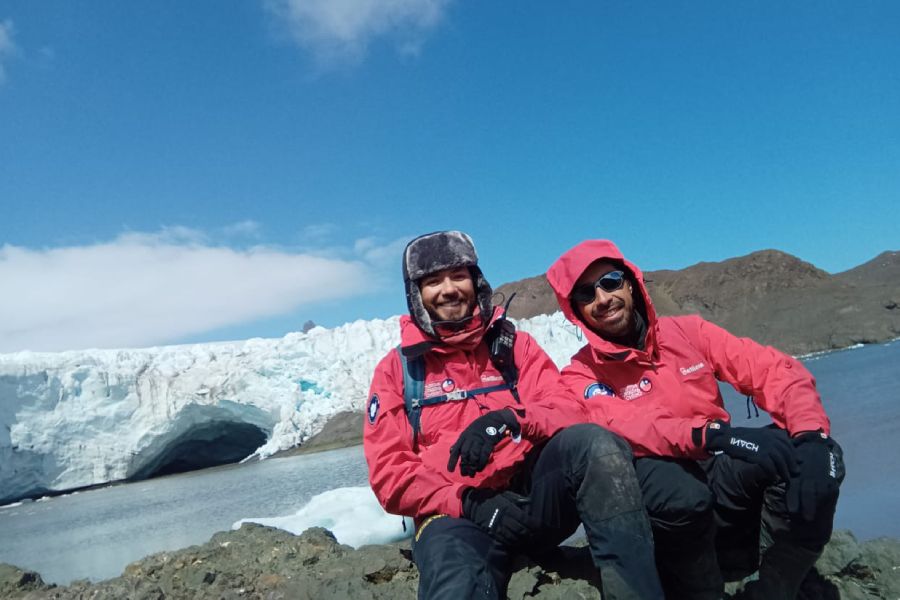|
The scientist Dr. Alexis Gaete and the biologist Cristian Arenas went to the Ecology Glacier to take permafrost, moraine, and rhizospheric soil samples. |
With the aim of carrying out an expedition to the Antarctic and taking different types of soil samples to evaluate changes in the dynamics of the microorganisms that live there, two researchers of the project ‘Antarctic microbiology of climate change: unearthing unknown virulence and resistance genes’ (mBioClim), led by Universidad de La Frontera (UFRO), travelled to the Ecology Glacier, which is located nearby the Polish base ‘Henryk Arctowski’ on King George Island. “This expedition directly contributes to the different fields of research, which the researchers and experts who are part of mBioClim work in. In addition, it is also a great contribution to the national scientific and technological work,” assures the researcher Alexis Gaete, who is specialised in microorganisms in extreme environments such as the Antarctic Peninsula, as well as his colleague Cristian Arenas, a biologist and support researcher, who also works on the mBioClim project. During their expedition, the researchers collected soil samples of different states of freezing, such as permafrost soil (frozen soil), moraine soil (recently thawed soil due to glacier retreat) and rhizospheric soil (completely thawed soil colonised by plants). In addition, they collected springtail specimens of the species Cryptopygus antarcticus, which is an arthropod endemic to Antarctica that lives in the rhizosphere and is able to tolerate extreme cold conditions. Dr. Gaete pointed out that these species are very interesting, “because they eat the bacteria and fungi that live in the decomposing matter, so in some way they regulate the soil transportation and interactions of soil organisms”. Apart from the study of the diversity of bacteria present in each of the types of soil and the arthropods, for the researchers it is essential to know if there are microorganisms with virulence and antibiotic resistance genes in recently exposed soils due to thaws. Written by: UFRO Vice-rectorate for Research and Graduate Studies |





